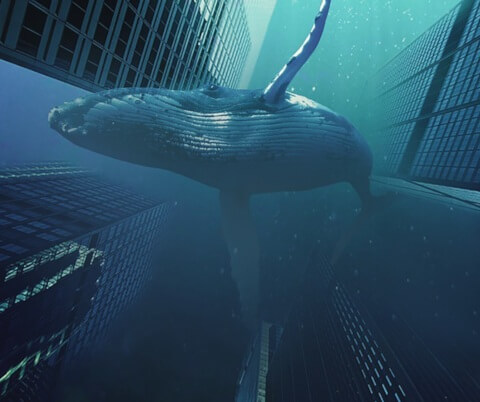Organic meat fallacy and an update on worrisome animal agriculture research
Vegan Society of Canada News
March 5th 2021
The myth of organically raised animals
It’s been the scientific consensus for a long time that a vegan way of life has a significantly lesser carbon footprint than a typical North American way of life. There are some who claim that a lifestyle that includes eating organically raised animals is better for the environment than non-organically raised animals. However, new research shows that the carbon footprint of organically produced animal products are similar to their conventional counterparts.
This research goes a little further in evaluating the externalities of production by including land use change and using a bottom up approach, which better models the entire emissions profile from start to finish. However, this research only monetizes the emissions of various animal products and does not account for various other externalities like cancer, the antibiotic crisis, loss of biodiversity, water shortage, pollution, and pandemics. Nevertheless, with certain aspects of the carbon footprint, it goes further than previous studies.

Figure 1: Monetary costs [C] for broad categories (animal-based, dairy, plant-based in the comparison between conventional and organic production) arising from monetized externalities of greenhouse gas emissions. For conventional production (animal-based and dairy), the external costs from land-use change (LUC) emissions are highlighted separately.

Figure 2: Relative percentage price [∆] increases for broad categories (animal-based, dairy, plant-based in the comparison between conventional and organic production) when externalities of greenhouse gas emissions are included in the producer’s price. For conventional production (animal-based and dairy), the surcharge from land-use change (LUC) emissions is highlighted separately.
The costs are given in euros as the data used in the model is taken from Europe, in this case Germany. It is clear that the price of both organic and conventional animal products would need to go up significantly to properly account for their emissions, not to mention all the other serious problems they are responsible for. Unfortunately, we are aware of no country in the world that currently has enacted laws for those products to properly account for their externalities. Instead, as we have seen in Canada, in line with our dismal record on climate change, we subsidize animal products extensively.
Developments in animal agriculture
To their credit, researchers and the animal agriculture industry have not been standing idle in the face of their significant impact on climate change. While some have embraced change, reinventing themselves as protein corporations and making significant investments in plant agriculture, some have invested instead in technology to make super-sized animals like Okja a reality.
From a purely scientific perspective, it is difficult to underscore the scientific breakthrough of this new research as it may be the foundation that provides a giant leap forward in making super-sized animals a reality. The technology could also potentially hold various applications for human animals, from one day providing a simpler and more affordable method of artificial insemination, to a simpler way to the ultimate designer babies. Leaving aside all the ethical concerns of such technologies and more generally the ethical issues with our exploitation of animals, while this research has the potential to reduce the animal industry’s carbon footprint, it will most likely never achieve the carbon footprint of a vegan way of life.
Let’s have a brief look at what was achieved in this research. Artificial insemination is not easy for animals or for the people doing the procedure. It’s a costly and time consuming process even for consenting human animals, so clearly for other animals the challenges are much greater. Add to this the challenges that come from the poor infrastructure of many countries, and you end up with a very difficult scenario in which efficiently scaling up production globally becomes nearly impossible.
This new scientific breakthrough makes it possible, in a way, to reprogram the reproductive systems of animals to propagate a different genetic material than their own, turning them into a template of sorts. In human animals, it would be the equivalent of developing the genetic material of a “perfect” human, and reprogramming the reproductive system of males to propagate this new genetic material instead of their own sperm. Assuming this process becomes easy enough, it makes it possible to centralize the research and development of breeding and genetics once we have developed the “perfect” animal to easily propagate it globally.
On its own, this scientific breakthrough is significant. It was certainly a major impediment to the building of cheap and efficient super-sized animals. However, not only will it most likely never result in a lower carbon footprint than a vegan way of life, but there are many ethical implications and various other problems, like potentially greatly reducing the genetic diversification of animals.
We encourage the animal agriculture industry, just like the fossil fuel industry, to plan a transition away from animals instead of doubling down on animal agriculture. For example, developing various plant initiatives like finding substitutes, crop rotations, standards, land clearing, and next generation farming technologies such as vertical farming.
Our doors will always be open to work with industry to achieve mutually beneficial objectives. We invite you to contact us so we can begin this important work.
A change of lifestyle offers individuals a powerful means to combat a range of issues, including personal health problems, climate change, loss of biodiversity, global acidification, eutrophication, freshwater shortages, pandemic prevention, antibiotic resistance, save countless lives and much more. We know of no other efficient way for individuals to address these critical challenges simultaneously without waiting for government, corporate, or technological interventions. By changing lifestyle, people can take immediate and impactful action. We encourage you to embrace this lifestyle change today. Contact us for support and to connect with local communities in your area.




